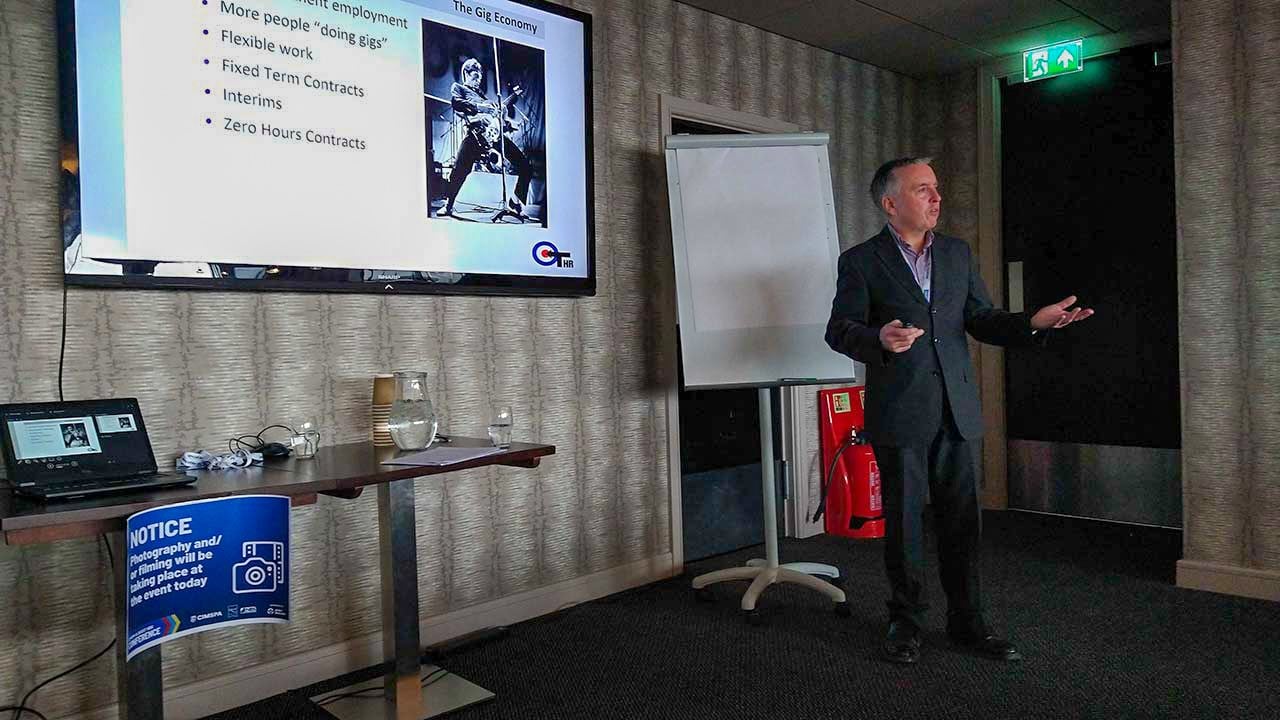Understanding employment status in the gig economy landscape
Les Potton
Leading HR Consultant, Target HR
Is the gig economy good for the sport and physical activity sector?
Les runs Target HR and Training and he has a longstanding relationship with CIMSPA. Les opened by stating the hirer carries most of the risk during recruitment.
After the Taylor Review into gig economy practices, the government has provided online tools to deal with self-employment. Les runs a business with an associate model running a business with self-employed people. The so-called ‘Good Work Plan’ is on the back burner because of Brexit. It sets out the government’s vision for the future of the UK labour market.
Casual workers are entitled to 12 weeks holiday and they receive a written statement rather than a contract from their employer when they start. A zero hour contracted employee is different to a casual worker.
Les asked the room if they believe the gig economy is good? Everyone in the audience except one says yes.
What is the gig economy?
The gig economy means someone has the flexibility for working for several people – according to Les, people like to have interim jobs. The gig economy has seen a reduction in permanent jobs. The sport and physical activity industry need to have someone that is flexible with their working hours, this results in less permanent employment and more people doing a ‘gig’.
Flexible work is when people can turn the hours down and work when they want to. Les explains people don’t get employment terminology correct and that people say they have a person on a zero hour contract but in fact their employee is a casual worker.
An interim employee works for their own company and then gets called up if there is work. If you are on a zero hour contract you obtain an employment contract which goes on for two years resulting in the employee having employment rights. A casual worker has no obligation to work for their employer if they are asked to work.
To summarise, Les explains the gig economy poses the good and the bad. It creates a lot more flexibility and a better work-life balance however it can create uncertainty and exploitation to the employee.
Les posed another question to the audience: what does ‘employee’ and ‘worker’ mean?
The answer was you don’t have to offer a worker any work.
What is a ‘gig worker’?
Les explains self-employed aren’t controlled by their employer. He explains integration is giving someone a title and giving people a structure at work. Benefits in the workplace are things such as sick pay. Intentions to cut corners to save money could go wrong in the end. An individual engages in a contract as it is the right one for them.
Les stated benefits to an employer hiring self-employed:
- Less tax and National Insurance.
- Holiday pay.
- More flexibility.
- No desk or equipment to be supplied.
‘Self-employed’ is a contract for services, a business contract between two different businesses. Les doesn’t employ anyone because he has self-employed people working for him.
There’s a difference between intention and reality. Reality is controlling a worker, giving them equipment, telling them they have to work 10 hours a week, among other things. This goes the other way on the pendulum. The consequence of this is gambling with casual workers’ lives as they are unsure when they will work.
Les ends by stating as a self-employed person you can check your eligibility for being self-employed online, with a tool provided by the government.
Les poses a final rhetorical question to the audience: if you answer the questions online and it says you’re employed – do you want to risk saying you’re self-employed to the government?
